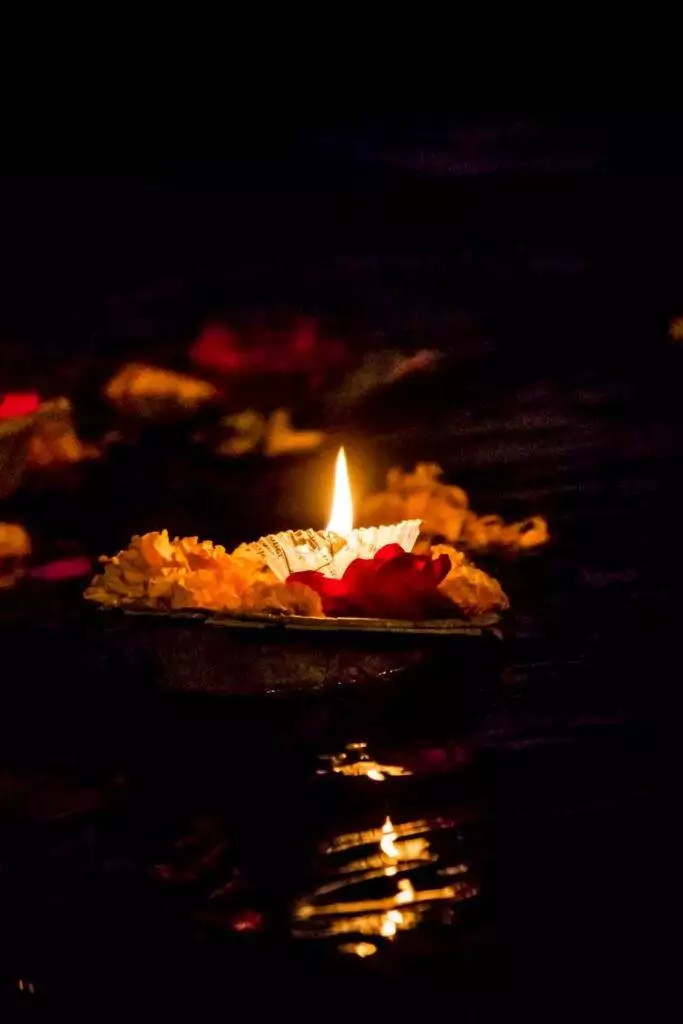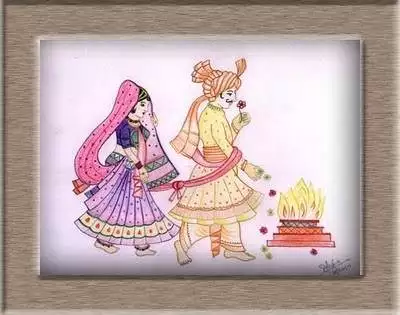Vedic Rituals
“The Art of Aligning with God Energy”
Independently of the devotion that each person professes to the gods of the family temple through the daily pooja and offerings of flowers, fruits and incense, there are rituals that can only be performed by priests and brahmins, which normally consist of fire ceremonies, celebrated on special occasions such as the beginning of a season, the full moon, the opening of a house of workplace, the birth of a child etc.
In Hinduism, the Vedic rituals are performed to get spirituality into our lives and instil feelings of piety and religion. Different rituals are performed at different occasions and during different months of the year, depending upon the event. These rituals are a significant concept of religion since it allows advocates to reaffirm their principles. Vedic rituals are meant for an effective communication with self and divinities.
Significance of Vedic Rituals
As per the Vedas, the purified Sanskrit chants offer a great deal of sound energy healing and release positive energies via cosmic forces. These have a positive impact on the devotee’s mind, body and soul. It also removes all negative vibes that are around. These rituals also help in pacifying the planets to offer the best of results.
It is via these rituals and ceremonies that Hindus pay their respects to God. For any Hindu devotee, prayers or pooja are an integral part of their lives. They do these rituals under the supervision of Hindu priests and Brahmins, who have gained expertise and experience.
My work as a priest and Vedic astrologer began about three decades ago in Vrindavan, the Indian centre of devotional Krishna worship. Following over seven generations of traditional Brahmin priests, I was privileged to learn their sacred arts from my father, Pandit Shri Bal Krishna Sharma. Following these heredity traditions on a practical level, I am qualified as a Brahmin (priest) to carry out sacred Vedic rituals – ‘poojas’, designed to enhance all aspects of life.
All these Vedic rituals are customized based on your needs and objectives.

Significance of Vedic Rituals
Ganesh Puja
Lord Ganesh is the symbol of auspiciousness; he is worshipped at the beginning of all Vedic rituals to invoke his blessings. Lord Ganesh is the lord of wealth, knowledge, and salvation. As the remover of obstacles he bestows wisdom, prosperity and good fortune, Ganesh puja is performed at the beginning of new undertakings such as starting a new business, new job and start of any travel.
Rudra Abhishek
Lord Shiva is ‘God of Gods – Mahadev’. He grants boons, bestows grace, and awakens wisdom. He is omnipresent. And he resides in everyone as pure consciousness. Rudra is another name of Lord Shiva.
Chanting Shri Rudram (also known as Rudra Upanishad & Satya Rudrriyam) purifies the entire atmosphere. The Sri Rudram identifies 346 desires of human beings to be fulfilled to have a peaceful and prosperous life and invokes Lord Rudra to fulfil all of them.
Rudra Abhishek is a ritual, involving pouring pure water or ghee, milk, sugar, curds, or honey on a Shiv Ling while simultaneously chanting of Vedic mantras and performing a pooja to please Lord Shiva. Rudra Abhishek brings positive energy, to attain desires and for prosperity.
This puja can also be performed during the holy festival of Shivratri.
Lakshmi Puja
Lakshmi is the wife of lord Vishnu, the Palanhar. Her puja gives us happiness and economic welfares. It bestows us with beauty, peace and harmony.
Durga Puja/Navratri
Durga homa is performed to invoke the energy signified by the goddess Durga (the Divine Mother). The energy of Durga is like that of a caring mother, bringing protection and harmony to those who invoke it. This homa increases mental and physical strength and happiness. It also enhances the five elements (earth, water, fire, air, and ether), which this creation is made up of, balancing and strengthening them, and bestows victory over problems. Durga is the energy or Shakti, behind the Creation. These various aspects of this energy are elaborately honoured during nine nights of the famous Navratri celebrations.
Grah Shanti
Nava Graha homa – Offerings are made to all the nine planets, effectively enhancing any positive effect they might be having on our life and reducing or removing any negative effects. The substances and materials offered into the sacred fire carry the same vibrations as the respective planets they are offered to and can balance or negate any negative vibrations and enhance any positive vibrations.
Kal Sarpa Puja
When in the chart, Kal Sarpa yoga is performed by Rahu and Ketu, this puja is recommended to release the negative energy crated by these malefic celestial bodies.
Janmashtami Puja
Janmashtami is an auspicious night as it is the birthday of Lord Krishna. He is considered as one of the human incarnations of Lord Vishnu and the absolute truth. He is the speaker of the Bhagvad Gita, which is recognized throughout the world as one of the mankind’s greatest books of wisdom and poetry.
Janmashtami is celebrated with devotional songs and dances, pujas, arti, blowing of the Conch and rocking the cradle of baby Sri Krishna to mark his birth and to show our devotion.
Marriage Ceremony

The Sanskrit word Vivah originated from three root sounds – vi + vah + ghai which means ‘a very special dedication’.
Vedic scriptures view marriage as the joining of two individuals, so that they can pursue dharma (duty), artha (possessions), kama (physical desires) and moksha (ultimate spiritual release) together.
Marriage is for spiritual growth and a way of learning many things in life through experience through union with your partner.
Baby Naming Ceremony
Naamkaran, is a traditional Hindu naming ceremony. The ceremony is performed to formally choose the new-born’s name and celebrated with family and friends.
According to Hindu traditions, the naamkaran ceremony is usually performed within a few weeks of the baby’s birth. The eleventh or twelfth day after birth is considered the most auspicious day for the ceremony.
If you wish to conduct any of the above Vedic ritual or puja, contact us.
